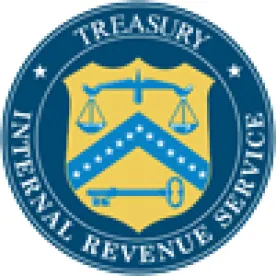On December 29, 2020, the Internal Revenue Service’s (“IRS”) Whistleblower Office issued its 2020 Annual Report. The Report once again demonstrated the importance of an effective whistleblower reward program in aiding in the detection of tax evasion and the prosecution of tax frauds. However, the long delay in processing claims continues to undermine the law’s effectiveness and the potential contributions of whistleblowers.
First, the good news:
-
169 awards were paid to whistleblowers;
-
The total amount of awards (before sequestration) totaled $86,619,032;
-
The IRS collected $472,080,014 from tax law violators, including $110,438,166 obtained from criminal tax cases;
-
Since 2007, the Whistleblower Office made awards in excess of $1.01 billion based on the collection of $6.14 billion in back taxes, interest, penalties, and criminal fines and sanctions.
Next, the bad news:
The number of awards paid to whistleblowers over the past three years has substantially declined. In 2018 whistleblower claims triggered $1.441 billion in collected proceeds (i.e., back taxes, fines and penalties, etc.), and whistleblowers obtained $312 million in awards. In 2019 the amount of collected proceeds was $616 million, and $120 million was paid in awards. In 2020 only $86.6 million was paid to whistleblowers.
However, there was even worse news in the Annual Report. The Whistleblower Office currently takes 10.79 years to process a whistleblower case. These long delays have resulted in a massive backlog of cases. As of September 30, 2020, the Whistleblower Office had a backlog of 23,943 cases.
These delays and backlogs are not the fault of the IRS Whistleblower Office. That Office lacks the resources to properly respond to the thousands of whistleblower filings it receives each year. The entire office only has 43 full-time employees, including its entire executive staff, award recommendation staff, planning and programming staff and case development and oversight staff. This staff must not only manage its backlog of cases but must also process all the new claims that are filed. In FY 2020 9077 new claims were opened. Many of these claims concern the largest and most complex tax frauds under investigation, including numerous offshore illegal banking and money laundering cases.
Thus, on average each employee in the IRS Whistleblower Office would have to process over 200 new claims each year. This work is on top of the requirement that the Office adjudicate all pending cases, make determinations in all eligible cases, and respond to internal appeals on the case denials.
Given the amount of taxes and sanctions obtained in whistleblower cases, the backlog and lack of resources are inexplicable.
An expanded and effective whistleblower program is urgently needed to fix the “tax gap.” In a report issued in 2016, and on additional studies conducted by the IRS, it is estimated that the United States loses $441 billion per/year in unpaid taxes. These losses create a tremendous hardship on honest citizens who pay their taxes and significantly contribute to the nation’s debt.
Congress must act to fix this program. These reforms should include:
-
A strict 1-year deadline for adjudicating whistleblower claims, commencing on the date that sanctions are collected by the government.
-
Additional resources for the Office of the Whistleblower. These funds can be obtained, in whole or in part, as a percentage of the sanctions recovered by the government from whistleblower cases. In this manner, the entire whistleblower program can be financed solely from the successful recovery of sanctions from tax cheats.
-
Certain statutory and administrative deadlines that are used to justify the delay in paying awards must be shortened.
The IRS whistleblower program has already resulted in the collection of billions of dollars in back taxes and penalties from tax evaders. The program was essential in combating illegal offshore banking and in exposing large scale tax evasion committed by numerous banks, billionaires and millionaires. Given the massive “tax gap,” the whistleblower program must be expanded. The current problems that are crippling its effectiveness must be fixed.




 />i
/>i

